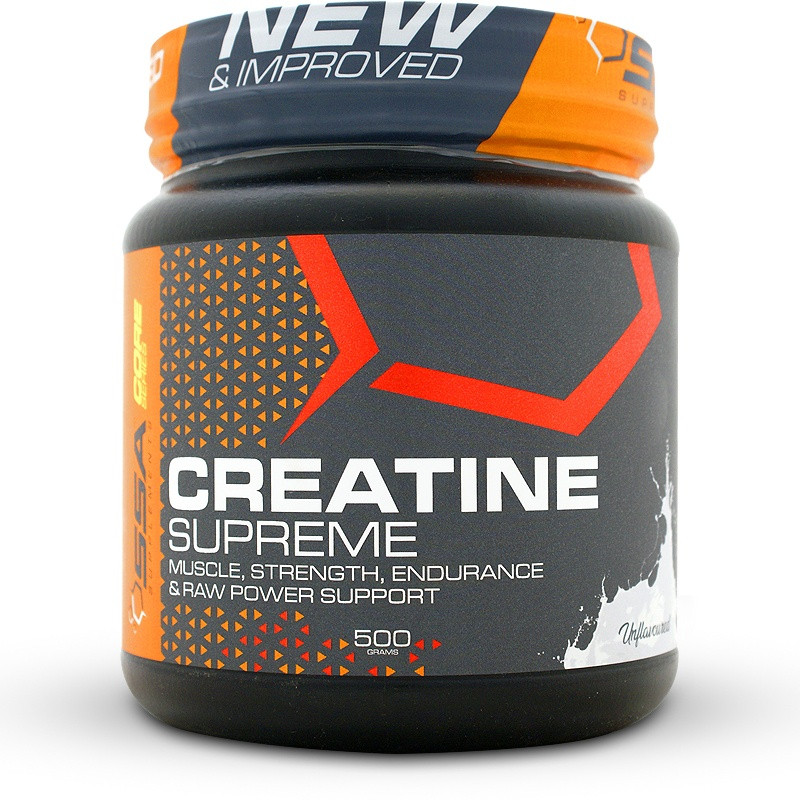Creatine Supplements: Everything You Need To Know

Table of Contents
H2: Understanding Creatine Supplements
H3: What is Creatine?
Creatine is a naturally occurring organic compound primarily found in skeletal muscle. It plays a crucial role in energy production within muscle cells, acting as a phosphate reservoir to help regenerate adenosine triphosphate (ATP), the primary energy currency of the body. Creatine monohydrate is the most widely researched and readily available form of creatine supplementation.
- Chemical Structure: Creatine is a methylated guanidinoacetic acid, a relatively simple molecule.
- Natural Sources: Creatine is naturally found in foods like red meat and fish. However, dietary intake alone often falls short of providing sufficient amounts for significant supplementation effects.
- Role in ATP Replenishment: Creatine facilitates the rapid regeneration of ATP, particularly during short bursts of high-intensity activities, enabling greater power output and faster recovery.
H3: Different Types of Creatine Supplements
While creatine monohydrate reigns supreme, several other forms exist, each with varying absorption rates and purported benefits.
- Creatine Monohydrate: The gold standard due to extensive research supporting its effectiveness and safety. It's highly affordable and readily available. Pros: Proven efficacy, cost-effective, widely researched; Cons: May cause some initial water retention.
- Creatine Hydrochloride (HCL): Claimed to have improved solubility and absorption, potentially reducing gastrointestinal issues. Pros: Potentially better absorption; Cons: Less research compared to monohydrate, potentially more expensive.
- Creatine Ethyl Ester (CEE): A supposedly more readily absorbed form, but research is limited and conflicting. Pros: Theoretically better absorption; Cons: Limited and inconclusive research, potentially more expensive.
Choosing the right creatine supplement often comes down to personal preference and budget, but creatine monohydrate remains the most reliable and well-researched option for muscle building and strength training.
H2: Benefits of Creatine Supplements
H3: Muscle Growth and Strength
Creatine supplementation significantly boosts muscle protein synthesis, leading to noticeable increases in muscle mass and strength.
- Increased Muscle Mass: Studies consistently demonstrate significant gains in lean body mass with creatine supplementation, especially when combined with resistance training.
- Improved Strength Gains: Creatine users experience notable improvements in strength performance across various exercises, including bench press, squat, and deadlift. This is primarily due to enhanced ATP regeneration.
H3: Enhanced Athletic Performance
The benefits extend beyond the gym. Creatine enhances performance in high-intensity activities.
- Improved Sprinting Performance: Creatine boosts power output and reduces fatigue during short, intense sprints.
- Enhanced Weightlifting: Improved strength and power translate to better weightlifting results.
- Faster Recovery: Creatine aids muscle recovery, allowing for more frequent and intense training sessions.
H3: Cognitive Function
Emerging research suggests potential cognitive benefits of creatine.
- Improved Memory: Some studies indicate potential improvements in memory and learning.
- Enhanced Brain Function: Creatine may support brain health and cognitive function, though more research is needed to confirm these effects conclusively.
H2: Potential Side Effects and Safety of Creatine Supplements
H3: Common Side Effects
While generally safe, some mild side effects can occur.
- Water Retention: Creatine pulls water into the muscles, leading to temporary weight gain. This is a common and generally harmless effect.
- Stomach Cramps and Nausea: These are usually mild and often subside with continued use or adjustments in dosage.
H3: Safety Concerns and Precautions
- Kidney Concerns: Individuals with pre-existing kidney conditions should consult their doctor before using creatine supplements. For healthy individuals, creatine supplementation poses minimal risk to kidney function.
- Hydration: Maintaining adequate hydration is crucial while taking creatine to facilitate proper absorption and prevent dehydration.
- Consult a Physician: It’s always best to consult a healthcare professional before starting any new supplement regimen, especially if you have underlying health conditions.
H2: Creatine Supplementation: Dosage and Usage
H3: Recommended Dosage
A typical creatine supplementation regimen involves a loading phase followed by a maintenance phase.
- Loading Phase: Consume 20 grams of creatine monohydrate daily, divided into four 5-gram doses, for 5-7 days.
- Maintenance Phase: After the loading phase, switch to a maintenance dose of 3-5 grams per day to maintain elevated muscle creatine levels.
H3: Cycling Creatine
Cycling creatine involves periods of supplementation followed by periods of rest. The effectiveness and necessity of cycling are debated.
- Cycling Regimen: Common cycles range from 6-8 weeks of supplementation followed by a 2-4 week break.
- Ongoing Research: More research is needed to definitively determine the optimal cycling strategy.
H3: Combining Creatine with Other Supplements
Creatine often synergizes well with other supplements.
- Protein Powder: Combining creatine with protein powder can optimize muscle protein synthesis and support muscle growth and recovery.
3. Conclusion
Creatine supplements, particularly creatine monohydrate, offer a safe and effective way to enhance muscle growth, strength, and athletic performance for healthy individuals. While mild side effects like water retention are possible, they are usually temporary and manageable. Remember to follow the recommended dosage, stay well-hydrated, and consult your doctor before starting any new supplement regimen, especially if you have pre-existing health conditions. By making informed decisions, you can harness the power of creatine supplements to achieve your fitness goals responsibly. If you are looking to improve your strength training results or boost your athletic performance, understanding creatine supplements is key.

Featured Posts
-
 Tonights Nba Matchup Hornets Vs Celtics Prediction And Odds Comparison
May 17, 2025
Tonights Nba Matchup Hornets Vs Celtics Prediction And Odds Comparison
May 17, 2025 -
 Celtics Vs 76ers Prediction Can Boston Defeat Philadelphia
May 17, 2025
Celtics Vs 76ers Prediction Can Boston Defeat Philadelphia
May 17, 2025 -
 Ralph Lauren Fall 2025 Riser Key Trends And Design Elements
May 17, 2025
Ralph Lauren Fall 2025 Riser Key Trends And Design Elements
May 17, 2025 -
 Deepfake Detection Foiled Cybersecurity Experts Cnn Business Demonstration
May 17, 2025
Deepfake Detection Foiled Cybersecurity Experts Cnn Business Demonstration
May 17, 2025 -
 Tuerkiye Birlesik Arap Emirlikleri Erdogan Devlet Baskani Telefon Goeruesmesi Detaylari
May 17, 2025
Tuerkiye Birlesik Arap Emirlikleri Erdogan Devlet Baskani Telefon Goeruesmesi Detaylari
May 17, 2025
